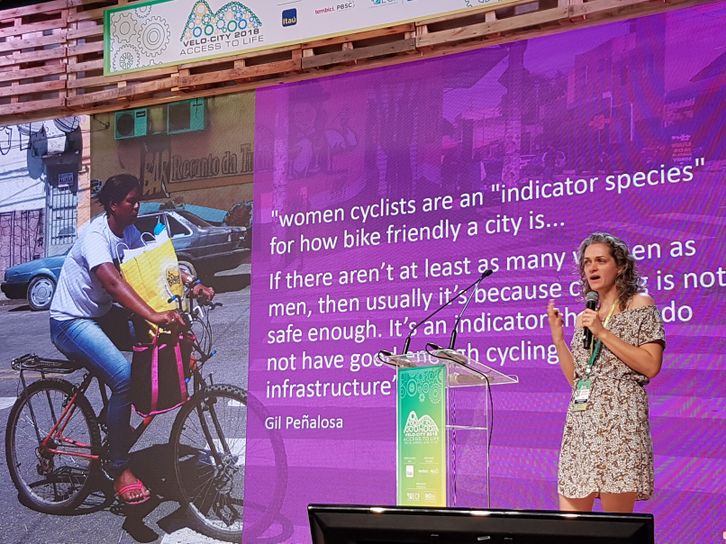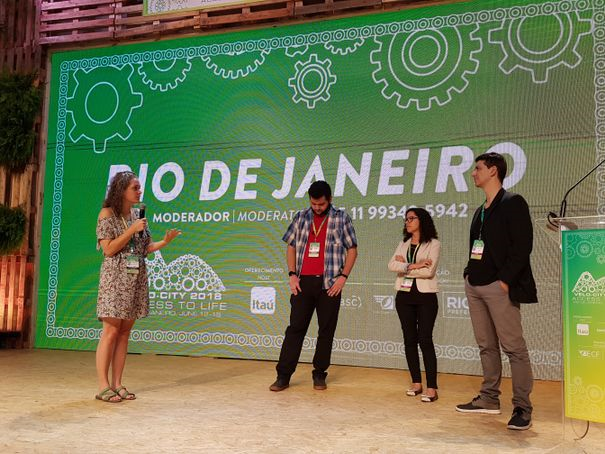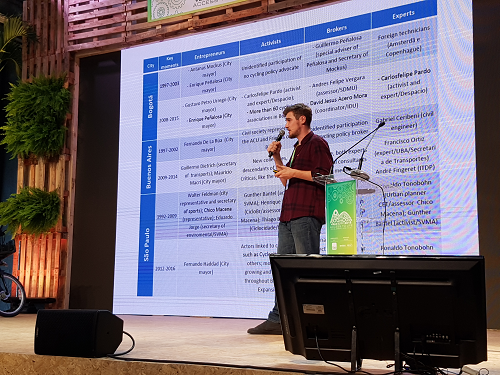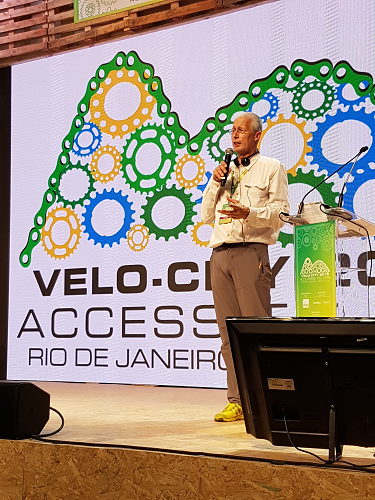
Velo-city Day 1 - S4C Sessions
The first day of Velo-city was also the kick-off of the academic stream of the conference, organised by the Laboratory for Sustainable Mobility at the Federal University of Rio de Janeiro in cooperation with ECF’s network Scientists for Cycling.
The chair of the network’s Advisory Board, Professor Peter Cox from the University of Chester, opened the first session by stating that academic research is an integral part of the cycling advocacy process, which is demonstrated by the full integration of the academic sessions into the Velo-city programme. He stressed that cycling research, as well as the network, are in a transformation process at the moment: Academics are more and more able to show the impact of their research. They can also support the work of advocacy at all levels. The Scientists for Cycling network will be developed into a full register of researchers from all relevant fields.
Filipe Marino, researcher at LABMOB, then gave a brief introduction of cycling research in Brazil. The country’s academic community working in these field is small but growing. There is a shift in concepts away from “urban transport” towards the more comprehensive “urban mobility”. The expected increase in academic output on active mobility will help to promote more sustainable and democratic cities.

The first of the day’s academic sessions looked at cycling promotion in multi-actor systems of global megacities. Lucas Rosin from the University of São Paulo focused on the construction and execution of the cycle policy agenda in Bogotá, Buenos Aires and São Paulo through a systematic analysis of the responsible actors. He highlighted the role of argumentation and persuasion in the political process; looking at the development from the 70s until today.
Leticia Lemos from the University of São Paulo presented the connection between activism and state policy in cycling promotion in São Paulo. She showed the path of the different generations of bicycle activists, from focusing on promoting sports cycling for the upper class to more political demands and generalising cycling as a means of transport. In parallel, she retraced the development of public cycling policies, showing the interactions between civil society and public policy.

The second session, moderated by Professor Victor Andrade, coordinator of LABMOB, focused on studying cyclists’ behaviour in the wider transport system.
In his research, Guilherme Alves studied the use of bicycles in peripheries of Brazilian cities through a concrete case study, looking at various indicators that could influence bicycle use to form a scoring system. He found that people use the bike quite a lot even though conditions are poor; more than the quality of the infrastructure, other factors are more important conditioners – e.g. low income in combination with high price for public transport.
Leticia Lemos from the University of São Paulo looked at the factors influencing female cycling rates in her city. According to her, transport planning often overlooks the diversity of mobilities and the different travel patterns of women and undervalues trips other than home-to-work. There was an increase of share of women cycling in São Paulo since 2011; safe infrastructure are linked to an increase in women cycling (but we don’t know whether they just changed routes). The roots of cycling behaviour also lie in cycling education in childhood – life trajectories can help to understand where cultural barriers are. She concluded that cycling infrastructure is important as an initial click, but networks and stimulus are playing the most important role in the long run. Public safety also needs to be addressed; additionally, we need to rethink our concept of infrastructure – some cycling infrastructure is not used by cyclists
Finally, Leticia Quintanilha from LABMOB presented her research on the Integration between metro and bicycle in Rio de Janeiro in a socioeconomic perspective. She found that there is a strong correlation between more complete infrastructure (including parking and bike-sharing stations) around metro stations and higher incomes along the lines she studied. According to her, this shows that the actual vision of transport and urban planning reinforces inequalities of access.

Network/Project Involved:
Contact the author
Recent news!
Upcoming events
Contact Us
Avenue des Arts, 7-8
Postal address: Rue de la Charité, 22
1210 Brussels, Belgium









